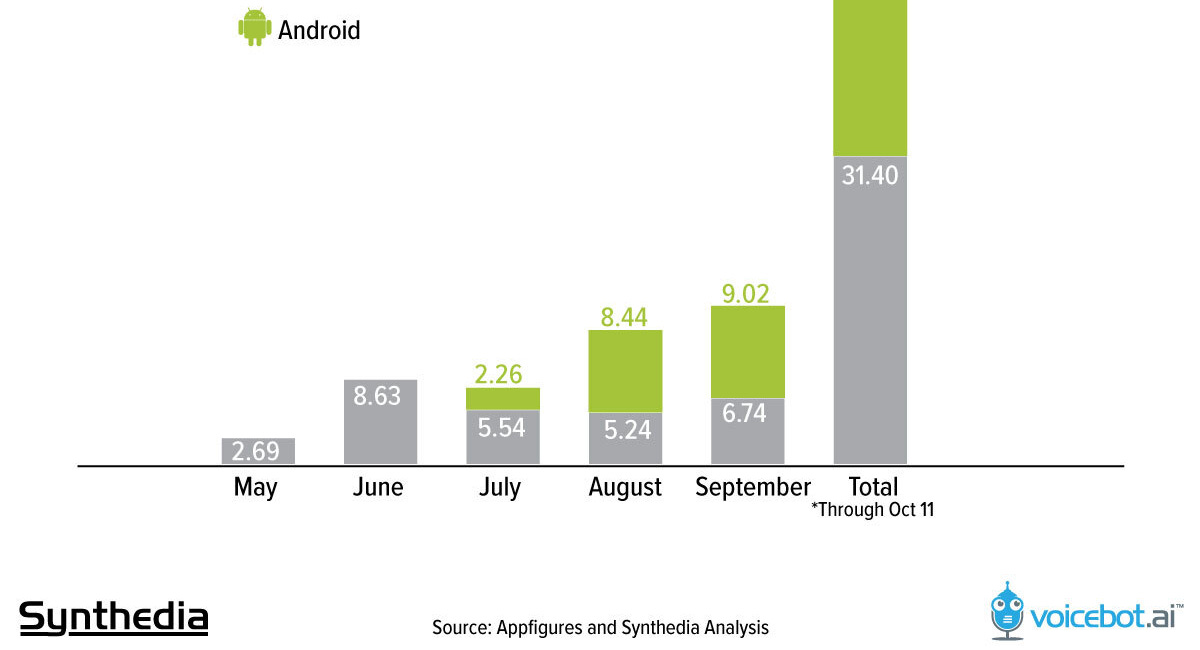Google Adds Broad Generative AI Indemnity, But You Might Want to Note the Exceptions
Free service users are not covered, nor are several others
Google announced that it has added specific language providing clarity around indemnification for generative AI services last week, and has benefitted from numerous favorable headlines. However, if you take a look at the updated terms of service (TOS) you will notice several exceptions that will get the attention of corporate legal teams. And corporate legal teams appear to be a key motivation for including the revised terms.
First, I will discuss the new benefits and follow that up with more information about the limitations of this protection.
Broad Indemnity for Paid Users
In a blog post this past week, Neal Suggs, VP of Legal, Google Cloud, and Phil Venables, VP, of TI Security & CISO, Google Cloud, commented:
The indemnity for training data used by Google for generative AI models in all our services is actually not a new protection. We have always stood behind all of our services, including generative AI services, by offering a third-party intellectual property indemnity as standard for all customers. However, we’ve heard from many of you that while your company appreciates our general services indemnity, you would like explicit clarification with regards to the training data behind the Google models that those services leverage. We are happy to deliver this reassurance.
Specifically, our training data indemnity covers any allegations that Google’s use of training data to create any of our generative models utilized by a generative AI service, infringes a third party’s intellectual property right.
Training Data and Inference Protection
The upside of Google’s announcement and terms of service updates is that the company is explicitly extending indemnity to customers for both training data and model outputs. Other indemnity clauses from companies such as Adobe, Getty Images, and Shutterstock are focused on model outputs. That seems reasonable to me, given that the source of an action by an intellectual property rights holder would presumably be about outputs that are published.
It is unclear how a user may become liable for something unpublished but resident in training data. However, it could be that anyone using a generative AI model that had protected IP in the training data could be seen as using that for image generation. It is good to see the added protection for text generation spelled out as well.
Indemnity related to model outputs may soon become an expected feature of services based on generative AI models. This points out another positive element of Google’s TOS updates. The use of the term “generative AI models in all our services,” is also notable. Several providers of text-to-image generators have announced indemnity protection for users. I don’t know of any text generation solutions that are providing comparable protection. Kudos to Google for considering the multiple angles of its legal protection regime.
Read the Fine Print
Duet AI, Vertex AI, and Google Workspace are specifically mentioned. Bard is not mentioned. If you are using Bard within Google Workspace, indemnity is likely covered. Outside of that use case, it is not.
There are two key elements to keep in mind with the indemnity clause. It only applied to paid products and general availability products. If you are using Bard for free, the new language appears to exclude it from protection. The same applies to other solutions such as Google Search Generative Experience (SGE). It is an “Experimental” product and, therefore, is excluded.
The generated output indemnity will apply to Duet AI in Google Workspace and to a range of Google Cloud services. As a part of today’s announcement, products covered include:
Duet AI in Workspace, including generated text in Google Docs and Gmail and generated images in Google Slides and Google Meet
Duet AI in Google Cloud including Duet AI for assisted application development
Vertex AI Search
Vertex AI Conversation
Vertex AI Text Embedding API / Multimodal Embeddings
Visual Captioning / Visual Q&A on Vertex AI
Codey APIs
Note that neither Bard nor Google SGE are included in this list. Granted, this announcement was made jointly by the Google Cloud and Google Workspace product teams. Other executives lead Bard and Google SGE. It will be interesting to see if other Google products make similar updates to their TOS, but they still would likely not be covered as “free” services. Some of the relevant terms and definitions from the Google Workspace TOS include:
6. Pre-General Availability Offerings Terms. Google may make available to Customer pre-general availability Google Workspace features, services, or software that are identified as "Early Access," "Alpha," "Beta," "Preview," "Experimental," or a similar designation in the Services Summary, related documentation or materials, or a Test Application (as defined below) (collectively, "Pre-GA Offerings" ). While Pre-GA Offerings are not Services, Customer's use of Pre-GA Offerings is subject to the terms of the Agreement applicable to Services, as amended by this Section 6.
…
6.3 Disclaimer. PRE-GA OFFERINGS ARE PROVIDED 'AS IS', WITHOUT ANY EXPRESS OR IMPLIED WARRANTIES OR REPRESENTATIONS OF ANY KIND, AND ARE NOT COVERED BY ANY SLA OR GOOGLE INDEMNITY. Except as otherwise indicated in Specific Test Terms for a given Pre-GA Offering, Pre-GA Offerings are not covered by TSS.
12.1 Disclaimer. Workspace Generative AI Services (i) use emerging technology, (ii) may provide inaccurate or offensive Generated Output; and (iii) may provide content that does not represent Google’s views. Generated Output is not designed for or intended to meet Customer’s regulatory, legal, or other obligations, or to be used, or relied upon, as a substitute for medical, legal, financial, or other professional advice.
…
"Workspace Generative AI Services" includes (i) Duet AI for Google Workspace and (ii) other generative artificial intelligence features or functionality of the Google Workspace Services.
Google’s Terms of Service, which applies to all company solutions except where in conflict with product-level TOS, states that users automatically indemnify Google, but there is no mention of Google indemnifying the user. The TOS also says that Google services are used AS-IS and include no warranty.
The protection will also be void if the user knowingly uses IP from a generative AI-based application.
Removing Barriers to Adoption
The emergence of indemnity clauses offered by generative AI model providers is based on two important considerations. First, there are pending lawsuits about whether some foundation model providers utilized proprietary information in training their AI models without compensation rights holders. Second, litigants who are targeting AI model providers may, at some point, turn their attention to users of these systems.
Both of these considerations revolve around user risk and may cause company attorneys to delay the implementation of generative AI solutions. Google’s move to clarify indemnity for AI is designed to reduce adoption friction.
Google Search Generative Experience will Create Images and Provide Writing Assistance. Is This Bard?
Google is updating its Search Generative Experience (SGE) to include AI-powered image generation and writing assistance. The features join existing generative AI-enabled answer summaries in search results and webpage summaries while browsing. Microsoft already offers image generation through Bing Create, and writing assistance in Bing Chat. So, you cou…
ChatGPT Mobile App Tops 50M Downloads, Net Revenue at $3M Per Month - Full Breakdown
ChatGPT’s mobile app has been downloaded nearly 54 million times, according to tracking data collected by Appfigures. The iOS app launched on May 18th and accumulated over 11.3 million downloads in its first six weeks. OpenAI’s Android app launched on July 27 and tallied 10.7 million downloads in just five weeks.





